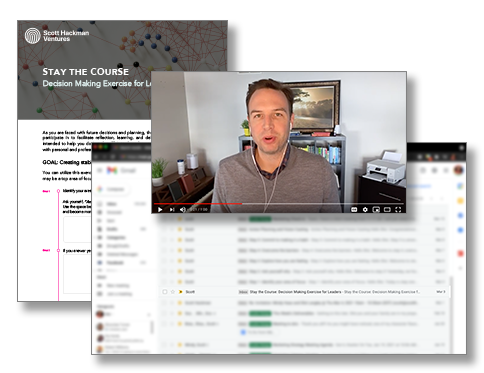An individual’s capacity to lead is a direct reflection of their wholeness. When a leader comes to work, they don’t leave pieces of themselves at the door…nor should they have to. The risk that fragments of their brokenness would seep into the work, affecting interactions with the team and reducing the organization’s cohesion and success is far too high. However, organizations often take on this risk only leaving room for robotic leaders with their nervous systems set on autopilot.
Workers, leaders, and employees in general have had enough. There is a desperate need for executives that bring their whole selves to the job—leaders whose knowledge, wisdom, experience and skills to do the job well comes from the many facets of a person pieced together over time. When the leader is whole, they are both inspiring and effective, and wholeness is achieved through mindfulness.
What is a Mindful Leader?
A mindful leader is a person who has achieved a level of self awareness that encourages positive transformation in themselves and others.They are tapped into what makes them unique and empathetically honor differences in others’ lived experiences. They understand their points of overwhelm, exhaustion and overdependence and prioritize self care as an integral tool for success in their work and life routine.
Mindful Leadership Benefits the Workplace
We are no longer limited by the systems and structures that previously kept us isolated and alone on our jobs. People want to work together. Employees want to make better products, services and organizations. However, championing this type of talent demands the very best of a leader. It requires an act of courage to openly face doubt, worry, and fear in the quest for mindfulness and a connection to their feelings and needs. Doing so translates into an ability to also recognize and respect the need for the same amongst the individuals they team with. A healthy mind, body and heart for the leader allows them to listen closely to their internal regulator and to others, recognizing the value of the contributed input and collaborative exchange benefits the workplace as a whole.
It is time for leaders to slow down and get in touch with who they are at the core. Keeping up with a fast-paced work environment, negative news feeds, including pandemic updates, balancing home-life and the pursuit of personal success, and simply practicing emotional intelligence through it all can take a toll on even the most efficient and empathetic leader. However, leaders who practice mindfulness are more focused, creative, compassionate, accountable, and decisive.
A Challenge to the Mindful Leader
If you’re a leader, remain steadfast in your commitment to taking time out to be present with your mind and body. Honor your whole self. Get in touch with your nervous system and feelings. Learn how to regulate your mood through active attention. Bring your heart rate down and check-in with your thoughts through counting your breath. Exercise not to dominate your body, instead to give blood flow and elevated heart rate a chance. Use a feelings wheel and work with a coach, therapist or trusted friend. Get stirred up. Feel uncomfortable enough for newness to emerge. In doing so, you can propel yourself toward success and share insights and energy with your team.
Are you an executive, manager or leader at work? Leading a team with mindfulness has valuable benefits for you individually, the teams you lead and your organization. Our leadership coaches will walk alongside you as you explore how mindfulness can increase your potential and performance. Contact us today for a free consultation.


Scott Hackman is the Founder and CVO of Scott Hackman Ventures. He has over 15 years of experience in business advising, coaching, and leading growth through transitions.
Meet Scott.



